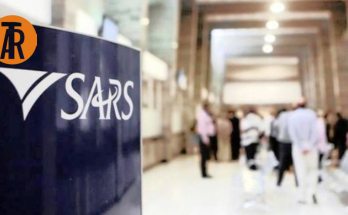On the 8th of July, 2022, a VAT Domestic Reverse Charge (DRC) on valuable metal was introduced in South Africa
A VAT Domestic Reverse Charge (DRC) on valuable metal has been introduced in South Africa’s regulation and published in the Government Gazette on the 8th of July, 2022.
The regulations on this charge were issued in terms of section 74(2) of the Value-Added Tax Act, 1991 (Act 89 of 1991), Notice 2140, and came into effect on 1 July 2022.
The Domestic Reverse Charge Regulations and How It Works
The DRC regulations dictate which supplies of valuable metals are prone to the DRC method and the related administrative provisions. These regulations were built and put in place to fight criminal attacks on the VAT system and misconducts known in the valuable metal industry.
It is important to note that the DRC method is only employed in a case where the supplier and the recipient of the valuable metal are registered VAT vendors.
Furthermore, the DRC means that the responsibility of the VAT charged by the supplier on a transaction regarding valuable metal automatically shifts from the supplier to the recipient.
This places certain responsibilities and obligations on both the VAT-registered supplier and the recipient of valuable metal.
Execution of the Domestic Reverse Charge Regulations
The first step is for Suppliers and recipients who have already registered as VAT vendors and who are presently in the trading of valuable metals to re-validate their registration status with SARS within the period dictated in the Public Notice to show whether they participate in the DRC, have desisted from business enterprise activities or have permanently ceased to make such supplies of valuable metal.
The next step is for SARS to reach out to affected registered vendors to carry out the revalidation.
The vendors then receive a “Letter of Intent: Re-Validation of VAT Registration Status” telling them that SARS will code them as falling within the ambit of the DRC Regulations and a re-validation confirmation letter.
In a situation whereby the vendor has not been contacted by SARS, it remains the vendor’s obligation to re-validate their registration.
Domestic Reverse Charge : The Revalidation Process
When pitting in a new VAT registration application, it is vital to diligently follow the below process once the VAT reference number has been supplied.
1. All revalidation requests must be submitted to VAT DRC validation@sars.gov.za, accompanied by the following details and supporting documents:
i. The VAT reference number of the requester and related VAT registration certificate.
ii. A copy of relevant permits from the South African Diamond and Precious Metals Regulator (SADPMR) or a license or permit issued by the relevant regulatory authority to conduct business in respect of valuable metal or second-hand goods.
iii. Bank statements not older than three (3) months.
iv. A list of suppliers of valuable metal and if available, their VAT reference numbers.
2. The vendor will then receive a letter issued by SARS assuring their re-validation.
Tax invoice changes and VAT 201 return declarations
It is vital that all tax invoices issued and received conform with the requirements of the Value-Added Tax Act with the following changes enjoined under the DRC Regulations.
The Supplier:
On the part of the supplier, he is expected to issue a tax invoice with full information that reflects that:
i. the supply is subject to the DRC,
ii. the Value Added Tax (VAT) imposed on the supply must not be contained in the amount shown as due by the recipient,
iii. and the amount of VAT imposed must be accounted for and paid (on behalf of the supplier) by the recipient.
Since the supplier will not be paying the VAT on these supplies, it is important that he only states the value of the supply (the sales price excluding the VAT amount) in field 3 of its VAT 201 return.
The Recipient:
On the part of the recipient, it is expected of him to own a valid tax invoice and must clear the VAT amount in the tax period following the time of supply.
The VAT amount must be declared in field 12 of the recipient’s VAT 201 return and clearing of the stated amount, therefore, forms part of the normal submission of return and payment of tax regime.
The recipient is obligated to inform the supplying vendor in writing through a statement within Twenty-one (21) days after the end of the calendar month during which a tax invoice was issued to the recipient vendor.
The below information must be included in the statement:
i. The tax invoice number.
ii. A complete description of the valuable metal as well as the percentage of the gold content included in the valuable metal.
iii. The value of the DRC supplies.
iv. A confirmation that the VAT imposed by the supplier was accounted for and paid to SARS by reflecting the applicable tax period and payment reference number issued by SARS.
Note that the recipient will qualify for an input tax deduction only if the VAT amount levied by the supplier has been stated and paid in the recipient’s VAT 201 return.
The DRC Regulations start on the 1st of July, 2022, and to make things easy, a transition period of one month starting from July 1, 2022, is provided for affected vendors to enable them to make the required adjustments to invoicing, accounting systems and other requirements under the DRC Regulations.
It should be noted that as of the 1st of August, 2022, the DRC Regulations will apply to all valuable metal supplies.



